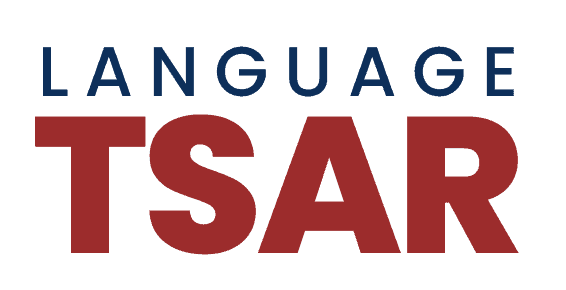Growing up in Ireland, I was constantly exposed to both British and American English (and the Australian variety as well) through the medium of television. Every day I would hear both versions with their myriad of regional and societal variations for several hours, along with Irish English of course.
I wrote ‘British’ but the vocabulary was a hotch-potch of Irish, British and American words depending on who I was with and in what context. None of this was a conscious attempt to fuse these influences. As a child this all happens seemlessly without effort.
Are you learning English? We found some great discounts on EnglishClass101.
Later on in life, I attended university at SAIS, Johns Hopkins University in Washington DC and my English began to make a lurch towards ‘American’. So much so that my accent and English have mutated into something a little freaky (as you can see in the following video).
So why so much confusion over what is ‘proper’ English? A lot of other languages have national bodies that decide what is the ‘proper’ form, e.g., Spanish, French, German and Irish. So can you speak American, British or some other type of English and still be speaking ‘correctly’?
If we have an independent government, why can’t we have an independent language?
The first time the issue of American language independence was raised by a lexicographer Noah Webster, the author of An American Dictionary of the English Language. His vision of the American language is well presented in the quote below:
“There iz no alternativ. Every possible reezon that could ever be offered for altering the spelling of wurds, stil exists in full force; and if a gradual reform should not be made in our language, it wil proov that we are less under the influence of reezon than our ancestors.”
As you can see from the alternatively-spelt quote above, he insisted that many spelling conventions of British English were artificial and needlessly confusing. He was subsequently the first to modify a lot of words’ spellings, for example, musick changed to music, centre to center, plough to plow, colour to color, honour to honor and labour to labor.
So Webster had a huge influence on the spelling differences that we observe today even though not all of his ideas were accepted and “women” did not become “wimmen”. 😂 His spelling reform also simplified the learning process for the millions of immigrants were subsequently arrived in the US and had to learn to read and write English as a foreign language.
So what makes American English most different from British english?
Sometimes British English is considered as being more formal than the American standard. This is actually not true in general, it’s just that ‘upper class’ British English can appear that way and that’s not what the majority of Brits actually speak.
Here are 7 key differences:
- The use of present perfect and past tense. Where the present perfect is used in British English, in American English it is preferable to use simple past tense. There are two cases: in sentences which talk about an action in the past that have an effect on the present and in sentences with time indicators such as “already”, “yet” and “just”. So, if the British would say “I feel bad. I’ve eaten too much”, the Americans would prefer: “I feel bad. I ate too much”;
Me working at my London ‘Office’
2. The verb agreement with collective nouns. If in British English the collective nouns can be followed by a singular or a plural form, in American English they are always followed by a singular form. So in British English “My team are/is winning” becomes “My team is winning” in American English;
3. The use of verbs “have” and “take”. In the case where the verb doesn’t have a lot of context in the sentence but occurs with an object noun which describes the action, the verb “have” is used in British English, and the verb “take” in American English. So “I want to take a bath” in American English is the same as “I want to have a bath” in British English;
4. The use of “needn’t” and “don’t need to”. The first form is frequently used in British English, and almost never used in American English. Americans would say “don’t need too” in this case;
5. The use of “shall”, “will”, “should”. In British English, it is common to use both “shall” and “will” (“I shall/will arrive earlier”), in American English only “will” is used. And in the case of asking for advice, Americans use “should”. For example, in British English, “shall I see a doctor?” is “should I see a doctor?” in American English;
Beautiful Central Park in New York City where I chilled during the Polyglot Conference 2015 weekend
6. The different simple past and past participle forms. Not all the verbs in American English are conjugated similarly to British English. For example, the verbs dream, burn and spoil can end with “ed” (American version) and “t” (British version). Also, the past participle of “get” in American English is “gotten” when in British English it was simplified a long time ago and it is “got”.
7. The rhotic accent is one of the most important and most noticeable differences between British and American English. The rhotic accent is common for American English, with the exception for New York and Boston area. It refers to the manner letter “r” is pronounced after a vowel within a syllable. For example, in the words hard (after long vowel), later (after ), here (after ) and pure (after ).
Of course, there are a lot of words that are different because of the different geographical locations, as well as, economic and cultural developments. For example, it is logical that British English is more influenced by French and American English has taken some additional words from its immigrant communities, in particular from Spanish, Italian, Yiddish and Dutch.
So, below is the list of the phrases that are different and we use them every day:
|
American English |
British English |
|
Apartment |
Flat |
|
College |
University |
|
Vacation |
Holiday |
|
Movies |
Film |
| Sweater |
Jumper |
|
Mailbox |
Postbox |
|
Soccer |
Football |
| Cookie |
Biscuit |
| Subway | Underground |
And what English do you speak or are currently learning? Write me your thoughts and experiences with British and American English in the comments section below. I read all comments I receive 😀

Michael has been an avid language learner and traveler for many years. His goal with LanguageTsar is to discover the most fun and effective ways to learn a language. He is currently learning Japanese, French and Indonesian.



Comments are closed.